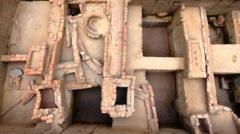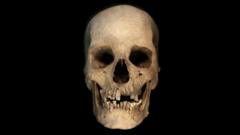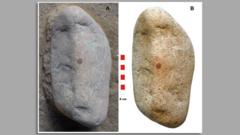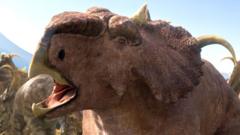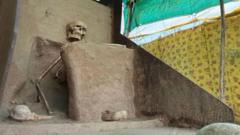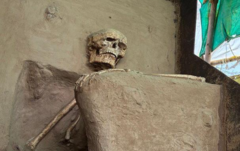Recent investigations have unveiled the skeletal remains of seven individuals in a mass grave located in what was once the Roman city of Mursa, present-day Osijek in Croatia. According to researchers, these skeletons likely belonged to Roman soldiers who lived approximately 1,700 years ago.
The excavation, which took place in 2011, revealed men who were not only completely preserved but also exhibited various injuries. Mursa was a significant Roman settlement and an essential hub for trade and crafts after being conquered during the first century BC.
According to a study published by several European archaeological institutes, the men were aged between 36 to 50 years, generally taller than average, and physically robust. Analyses indicated their diet was predominantly vegetarian, with occasional consumption of meat and seafood. Additionally, findings show that all individuals sustained multiple injuries, suggestive of conflict involvement and blunt force trauma, with puncture wounds likely caused by arrows or spears.
The skeletal remains also indicate that these men suffered from some form of pulmonary disease as they neared the end of their lives. Interestingly, DNA analyses reveal that the men came from a variety of ancestries and did not seem to be local inhabitants.
This period was marked by significant upheaval across the Roman Empire, particularly during the 'Crisis of the Third Century.' The researchers suggest that these soldiers might have been casualties of the Battle of Mursa, fought in 260 CE amidst a series of conflicts among various claimants to the throne.
The archaeologists noted that the pit containing the skeletons was initially a water-well. It is important to mention that the practice of mass burials was uncommon in Roman customs, typically reserved for extreme events and mass casualties.
Over the years, Mursa has gained attention in archaeological studies as numerous sites from ancient civilizations have been located in the vicinity.












